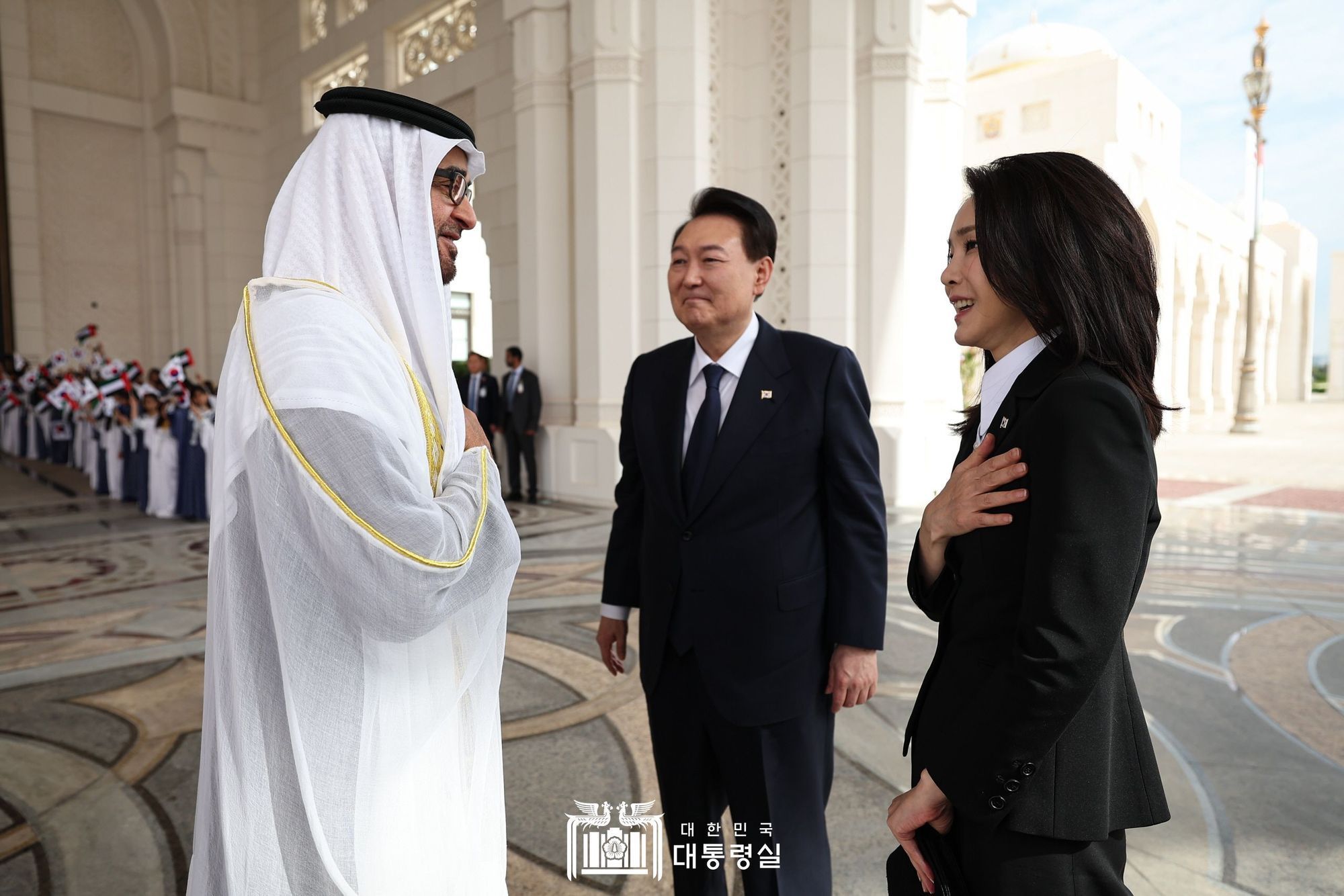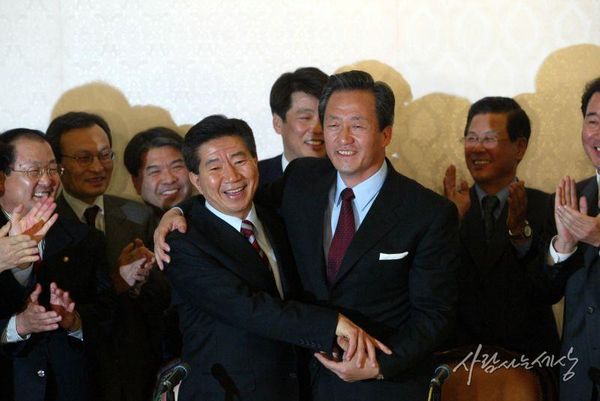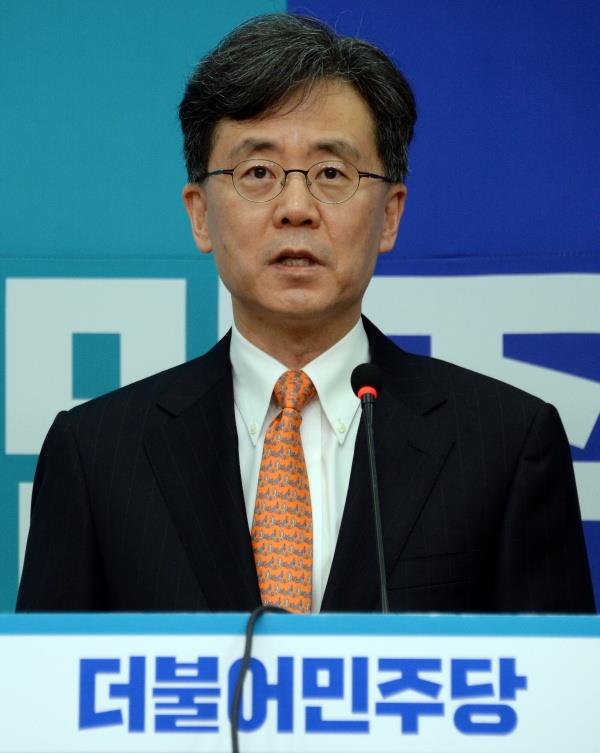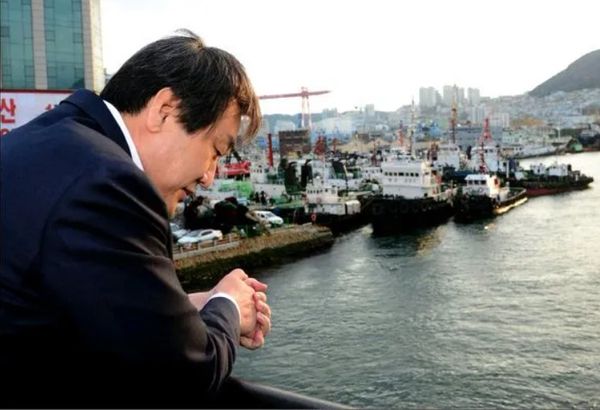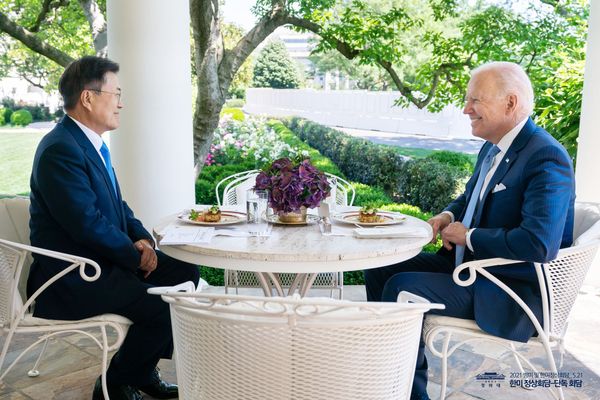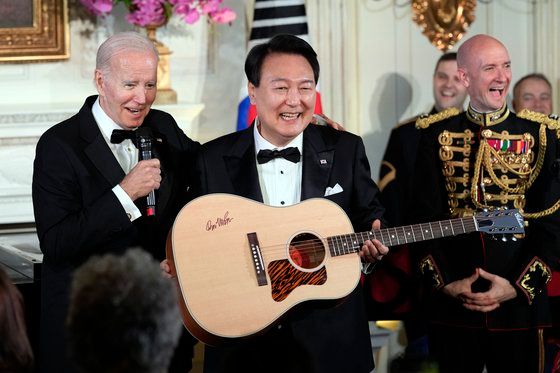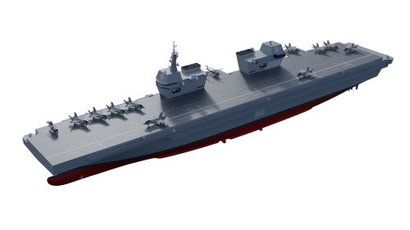Photo: President Yoon Suk-yeol and First Lady Kim Geon-hee in the United Arab Emirates. Credit: Office of the President.
On January 14, President Yoon Suk-yeol 윤석열 대통령 landed in Abu Dhabi and became the first South Korean president to make a state visit to the United Arab Emirates. But despite the new degree of formality, Seoul has long been a significant player in the Middle East and the Arab world, which was in many ways the first major destination for South Korea’s international outreach. Korean companies constructed major infrastructure projects in the Arab world, while the government carefully calibrated its engagement with various Middle Eastern rivals to serve the country’s mercantilist aims. South Korea’s relationship with the Middle East has continued on this path, even as the changing geopolitics have made the balancing act more difficult.
For South Korea, which was transitioning from light industry to heavy industry in the 1960s and 70s, the Middle East was a land of opportunities. Flush with cash from the energy crisis in the 1970s, the Arab world was ready to spend on major infrastructure projects. In 1973, Samwhan Enterprises 삼환기업 won a bid to construct a highway in Saudi Arabia, becoming the first South Korean construction company to lead a major construction project in the Middle East.
Leveraging cheap labor and the expertise gained from participating in construction projects during the Vietnam War, South Korean companies soon found themselves amid a construction boom in a welcoming market. At one point, nearly 200k South Koreans were working in construction projects across the Arab world, including an aqueduct in Libya, a port in Saudi Arabia, a shipyard in Iran, and a highway in Pakistan. From 1975 to 1980, Middle Eastern construction projects accounted for 80 percent of the total USD influx to South Korea, providing a foundation for Hyundai Group 현대 그룹 and other South Korean companies that would go onto become international behemoths.
Since then, South Korea’s presence in the Middle East has been ruthlessly mercantilist, overlooking the intra-regional tensions in favor of economic profit. During the Iran-Iraq War of the 1980s, South Korean companies traded with both sides of the conflict, selling military supplies to Iran while building construction projects in Iraq. South Korean construction companies gained a reputation for finishing projects in the face of active conflicts, even as some of their workers perished in naval attacks and bombing raids.
Even though South Korea belonged to the United States’ sphere of influence, it maintained strong relationships with countries like Iran and Libya by continuing to engage with them commercially. A major reminder of this moment is the “Teheran-ro 테헤란로”, a boulevard in Seoul’s Gangnam-gu district 강남구 which is today one of the city’s busiest streets. The road, named after Iran’s capital to commemorate the 1977 visit of Tehran’s mayor to Seoul, is now home to glass-and-steel skyscrapers hosting major corporations, banks and law firms. Until recently, South Korea was Iran’s third largest trading partner, behind only China and India, and to this day Iranians are among the world’s most enthusiastic consumers of South Korean pop culture - an under-appreciated force in the global hallyu 한류 phenomenon.
In recent years, however, South Korea’s conservative administrations have threatened to upend the careful balance that Seoul has historically maintained in the region. In 2009, for example, former president Lee Myung-bak 이명박 pledged to give military assistance to the United Arab Emirates in an undisclosed side deal in order to win the bid to construct the nuclear power plants that eventually became the first commercial nuclear power station in the Arab world, the Barakah Nuclear Power Plant.
As a part of the pledge, South Korea began stationing in the UAE the Akh Unit 아크부대, a 150-men special forces unit, ostensibly to assist in training UAE special forces. Lee’s pledge was revealed in 2018 during the Moon Jae-in 문재인 administration, stoking multiple controversies. It was problematic that the president could secretly deploy a South Korean military detachment, potentially to fight in a foreign conflict. Also, a potential military involvement would undermine South Korea’s position in the Arab world as an equal opportunity trading partner.
Meanwhile, as the relationship between the United States and Iran deteriorated in recent years, the Seoul-Tehran relations also suffered. South Korea was caught in the fallout from the 2020 assassination of Qassem Soleimani by the Donald Trump administration: Washington urged South Korea to send its navy to the Strait of Hormuz, while the Iranian Revolutionary Guard Corps issued a statement that “all allied countries of the US” would be targets of military retaliation if attacks were launched from bases in their countries.
In January 2021, the Revolutionary Guard seized a South Korean oil tanker off the coast of Iran, ostensibly because of environmental issues but in fact an attempt to demand the release of USD 7b in Iranian funds frozen in South Korean banks due to sanctions. The loose lips of Yoon Suk-yeol 윤석열, who casually declared Iran “our enemy” because of tensions between Iran and the UAE, gave Tehran another excuse to make the same demand while summoning the South Korean ambassador in protest.


